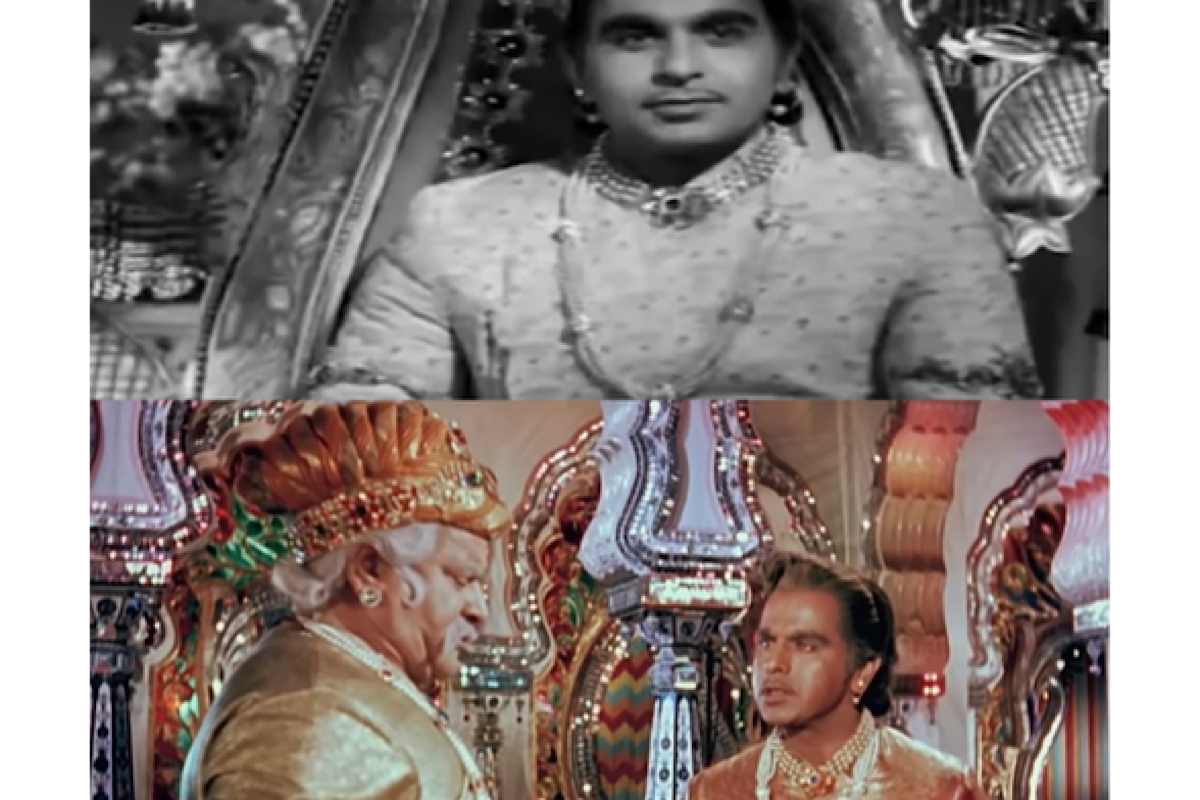Saira Banu recollects Eid celebrations with Dilip Kumar
Saira Banu reminisces about joyful Eid celebrations with legendary actor Dilip Kumar, sharing heartfelt memories and throwback photos on Instagram.
On the occasion of the 63rd anniversary of epic historical drama ‘Mughal-e-Azam’, veteran actress Saira Banu penned a heartfelt note, saying that the “mesmerising” portrayal of Prince Salim by late actor Dilip Kumar “added an extra layer of brilliance to the magnum opus.”

Saira Banu on 63 yrs of 'Mughal-e-Azam': 'Dilip Sahib's portrayal of Salim was a sight to behold' (photo : IANS)
On the occasion of the 63rd anniversary of epic historical drama ‘Mughal-e-Azam’, veteran actress Saira Banu penned a heartfelt note, saying that the “mesmerising” portrayal of Prince Salim by late actor Dilip Kumar “added an extra layer of brilliance to the magnum opus.”
Produced and directed by K. Asif ‘Mughal-e-Azam’ is a 1960 film, which starred Prithviraj Kapoor, Dilip Kumar, Madhubala, and Durga Khote in the lead.
The story follows the love affair between Mughal Prince Salim (who went on to become Emperor Jahangir) and Anarkali (played by Madhubala), a court dancer. Salim’s father, Emperor Akbar (played by Prithviraj) disapproves of the relationship, which leads to a war between father and son.
Advertisement
Saira took to Instagram and shared a video, wherein we can see glimpses of the cult movie. The Reel video shows both black and white, and coloured snippets from the film. It had the backdrop music of the popular melodies from the film- ‘Pyar Kiya To Darna Kya’ and ‘Mohe Panghat Pe’ sung by late Lata Mangeshkar.
She wrote a long heartfelt note: “In the history of Indian cinema, no movie has left as profound a mark on the hearts of audiences as ‘Mughal-e-Azam.’ This magnum opus, directed by the visionary K. Asif, stands as a timeless testament to the splendour of Indian filmmaking. At its very core lies the captivating performance of Sahib, whose portrayal added an extra layer of brilliance to the film.”
“Sahib’s portrayal of Prince Salim was nothing short of mesmerising. His ability to infuse life into the character, whether in moments of tender romance or fierce rebellion, was a sight to behold. His powerful performances created a symphony of emotions that echo in the hearts of the audience to date,” she said.
Saira further wrote that “Mughal-e-Azam” transcends the boundaries of time, effortlessly transporting viewers to the opulent era of the Mughal dynasty.
“The film’s journey to completion was no less than an epic saga itself, spanning an astonishing ten years. The attention to detail in every aspect of the movie, from the breathtakingly majestic ‘Sheesh Mahal’ set to timeless musical melodies such as ‘Thumri’ Mohe Panghat Pe and ‘Qawaali’ Teri Mehfil Mein, created by Naushad, to the intricate and aesthetically captivating costumes, showcased nothing less than brilliance,” she shared.
The soundtrack was composed by music director Naushad, and the lyrics were written by Shakeel Badayuni. As with most of Naushad’s soundtracks, the songs of ‘Mughal-e-Azam’ were heavily inspired by Indian classical music and folk music, particularly ragas such as Darbari, Durga, used in the composition of ‘Pyar Kiya To Darna Kya’, and Kedar, used in ‘Bekas Pe Karam Keejeye’.”
“The movie still remains a beacon of cinematic brilliance, reminding us of the artistic heights that Indian cinema can attain. It continues to inspire generations of filmmakers and actors, serving as a reminder that true artistry knows no bounds and stands the test of time,” she concluded.
‘Mughal-e-Azam’ was the first black-and-white Hindi film to be digitally coloured and the first to be given a theatrical re-release. The film’s colour version was released theatrically on November 12, 2004.
Advertisement